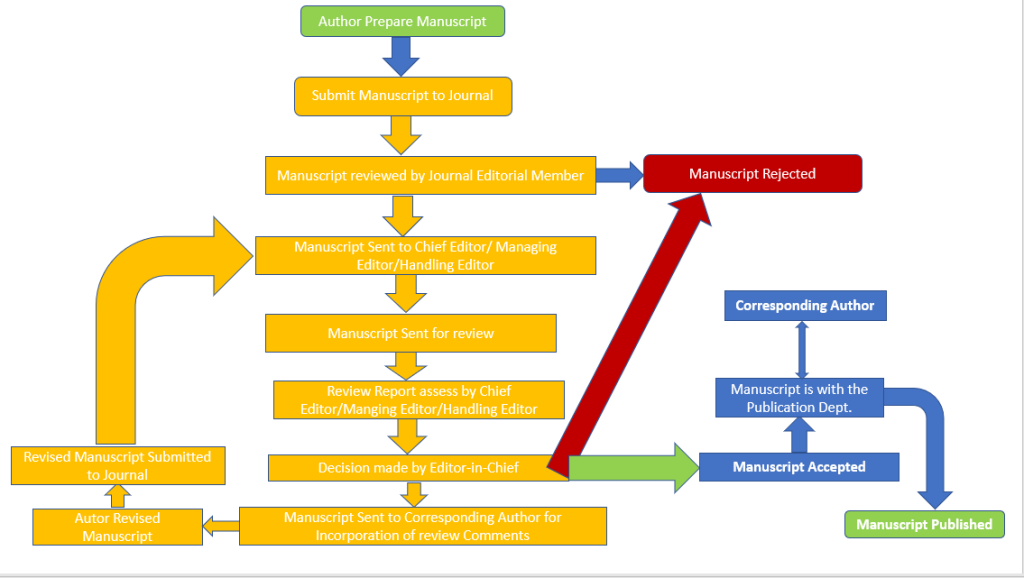Peer Review Policy
A paper is initially screened for scope and quality assessments when it is submitted to the Journal of Engineering Research and Application. Peer reviews are conducted on articles that pass the initial evaluations. An important step in the publication of an article is the review process. It helps an editor decide whether to publish an article and gives the author a chance to make the manuscript good.
The Code of Conduct and Best Practice Guidelines of the Committee on Publication Ethics (COPE) are followed by Journal of Engineering Research and Application. Every effort is made to ensure that peer review is rigorous, objective, and conducted in a timely manner. The significance, originality, and clarity of the paper, as well as the study’s validity and relevance to the journal’s scope, are taken into consideration when deciding whether to accept or reject a manuscript for publication.
Potential reviewers for JERA articles are sought out from a variety of places, such as the journal’s editorial board, in-house expertise, author recommendations, and online bibliographic databases. We heavily consider reviewers’ ratings when deciding whether to accept a submission for publication.
The assignment of reviewers is based on their subject-matter competence while keeping ethical considerations in mind. Peer reviews typically take 4-5 weeks to complete. Because the reviewers are providing their skills voluntarily, it occasionally may take longer than the allotted time to review the papers.
Experts advise pursuing one of these options:
Accept unconditionally Accept, with or without editorial revisions.
Accept conditionally
Before making a choice, ask the authors to revise their article to address specific concerns.
Reject in current form
Reject, but let the authors know that more work might make a resubmission appropriate.
Reject outright
Reject outright, usually due to lack of novelty, lack of professional interest, inadequate conceptual advancement, or significant technical and/or interpretational issues.
The Code of Conduct and Best Practice Guidelines of the Committee on Publication Ethics (COPE) are followed by Journal of Engineering Research and Application. Every effort is made to ensure that peer review is rigorous, objective, and conducted in a timely manner. The significance, originality, and clarity of the paper, as well as the study’s validity and relevance to the journal’s scope, are taken into consideration when deciding whether to accept or reject a manuscript for publication.
Potential reviewers for JERA articles are sought out from a variety of places, such as the journal’s editorial board, in-house expertise, author recommendations, and online bibliographic databases. We heavily consider reviewers’ ratings when deciding whether to accept a submission for publication.
The assignment of reviewers is based on their subject-matter competence while keeping ethical considerations in mind. Peer reviews typically take 4-5 weeks to complete. Because the reviewers are providing their skills voluntarily, it occasionally may take longer than the allotted time to review the papers.
Experts advise pursuing one of these options:
Accept unconditionally Accept, with or without editorial revisions.
Accept conditionally
Before making a choice, ask the authors to revise their article to address specific concerns.
Reject in current form
Reject, but let the authors know that more work might make a resubmission appropriate.
Reject outright
Reject outright, usually due to lack of novelty, lack of professional interest, inadequate conceptual advancement, or significant technical and/or interpretational issues.
After the article has been revised, the final decision on whether or not to publish it rests with the Chief Editor and the Managing Editors.


